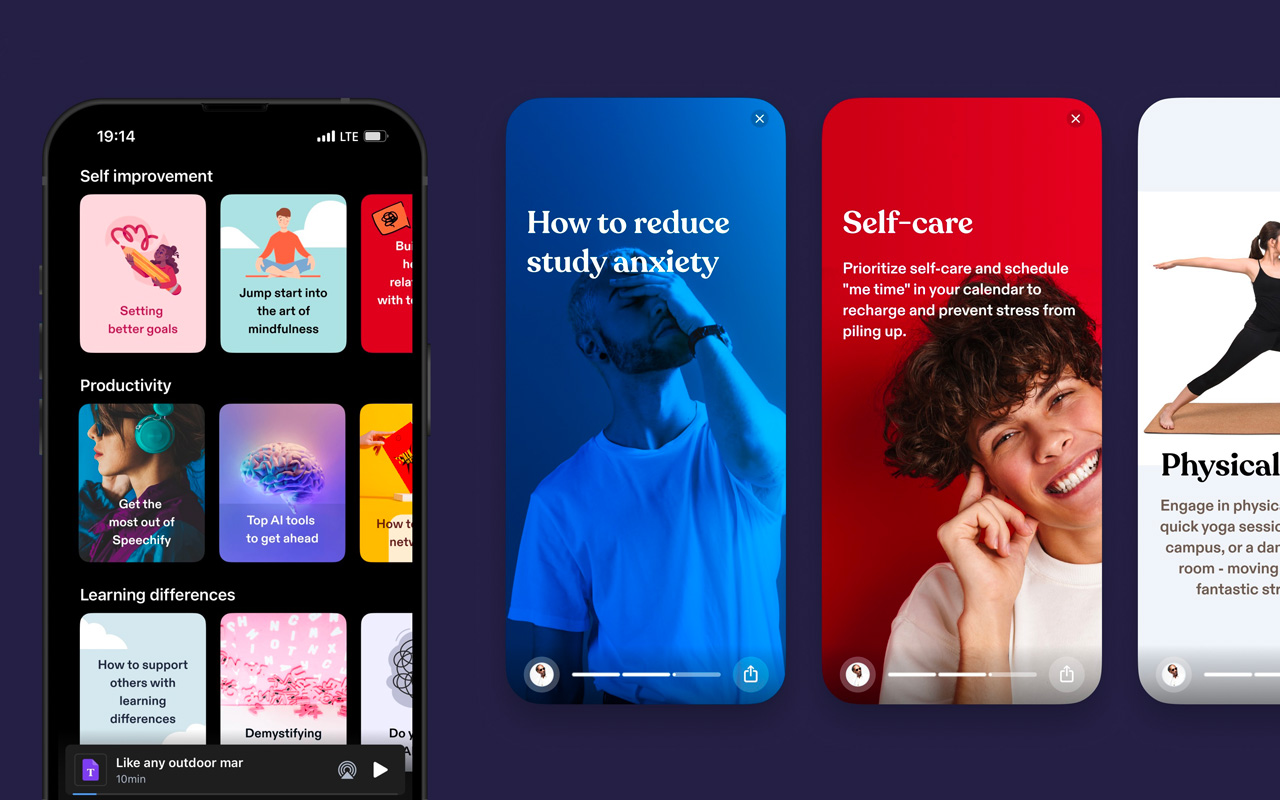How does AI technology generate voice? Read on to find out how voice generation works and how you can use this technology.
Generate voice
Modern technology makes it possible to use AI voices to do many things. One of them is to create immersive voiceovers. Let’s see how this technology works and how you could use it for different applications and different benefits.
The technology behind voice generation
There are countless nuances to spoken languages, which is why it’s hard to create realistic voices using voice cloning. Building a machine that recreates these nuances requires the developer to consider different variables, including accent, intonation, and depth.
That’s where machine learning and deep learning come in. These technologies utilize layered algorithms to form a synthetic neural network based on our brains. As a result, it can make smart decisions and learn the patterns of human voices.
Machine learning processes long stretches of embedded voice recordings from voiceover artists. Afterward, the system learns to covert text to speech or teaches itself to speak by using the information supplied by the audio.
This process generates synthetic voices that are incredibly lifelike. The generation can sometimes be so accurate that it’s hard to tell AI voices from human speech.
Voice generators rely on state-of-the-art technology, but they’re typically easy to use. Some apps require you to enter plain text, whereas others need speech synthesis markup language (SSML). Either way, platforms generally have intuitive interfaces to simplify this process.
Once text is uploaded into a platform, most apps allow you to choose from various voices built into their libraries. You can select the preferred speech depending on the preferred style, language, and other features.
Alternatively, you might be able to use your own voice. If so, the software requires you to read text aloud, so it can analyze speech and reuse it for audio files or other media that need voiceovers.
Why use a generated voice?
There are many use cases of generated voice:
Teaching aids
You can use real-time voice generations to help children with dyslexia, ADHD, or other disabilities learn more easily. The technology creates custom voices that allow students to learn at their own pace without any pressure by improving brainstorming and storytelling.
The same can be done to aid individuals with vision problems. AI-produced voice sounds help vision-impaired users navigate web pages to make their e-learning experience more interactive. The generated speech makes learning content more accessible by preventing overreliance on the written word.
Another feature that makes voice generators a superb teaching aid is the ability to break language barriers. Additionally, this doesn’t just help classrooms – startups can also gain from it.
For instance, businesses don’t need to hire third-party translators to help members from different countries understand explainer videos, screen recordings, and tutorials. A well-designed voice generator does the work for them.
Save money on voice actors
There are multiple ways to save money by integrating with a voice generator. Besides businesses, this technology can also be used by content creators. Rather than hiring voiceover artists, they can employ an app to create speech for their videos within minutes.
Good AI speech generators aren’t free, but they’re nowhere near as expensive as hiring professional voiceover artists.
Create voice recordings for YouTube videos
The most popular YouTube videos combine mesmerizing pictures with crisp audio. However, as previously mentioned, you might not have enough money for voiceover professionals.
You shouldn’t deprive your videos of good narration, and you won’t have to, with many voice generators readily available.
When properly used, voice generation encourages your viewers to share your content and interact with it. This includes comments, likes, and revisiting your channel to check out more videos.
Furthermore, AI voice changers and generators can help you explain what’s going on in your videos more easily. Suppose you’re laughing in one of your YouTube videos. If you post the clip without your voice, your audience will assume you’re laughing with joy. However, your laughter might actually be sarcastic or pretentious.
A high-quality voice generator also clarifies your intention. The same goes for demonstration videos. If you’re describing how your audience can operate a specific machine, you can use a custom voice to tell them what’s happening. This takes any guesswork out of the equation.
Speechify – Computer-generated human-like voices for your next project
There are many AI voice generators, but some have a high price and steep learning curve. You won’t have this issue with Speechify.
Speechify is a robust text to speech (TTS) platform with remarkable voice-generation capabilities. It reads digital text aloud using a cutting-edge API that accepts files from various sources, including your computer and smartphone.
Once you upload your file, the software creates text to speech voices that clone human speech. You can use the voices of Gwyneth Paltrow, Snoop Dogg, or Barack Obama. All of them can deliver immersive recordings in English, Portuguese, and many other languages.
Best of all, using Speechify you can download the recorded audio files for your next podcast or other projects. Save them in the MP3 or WAV format, and you’ll be able to access them anytime.
Test Speechify’s text-to-speech voice generation for free.
FAQ
What are the steps to generate a voice?
The steps to generating a custom voice depend on your platform. But in some cases, you need to record your own voice and allow the app to analyze it. Within a few minutes, the software learns how to speak based on your input.
What are the benefits of using an online voice generator?
An online voice generator can be incredibly beneficial. It works as an effective teaching aid, helps you manage learning disorders, and reduces costs associated with hiring voiceover artists.
What is a good voice tone?
It’s hard to say what makes a good voice tone because there’s no accounting for taste. You should use a tone your audience generally finds pleasant to maximize interaction.
















